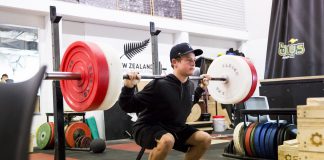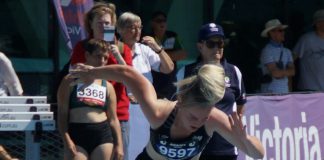The best athletes I know have a deep awareness of themselves. They’re realistic of their own abilities, they understand their strengths and weaknesses, they appreciate how their actions may affect others and they know the gaps that need to be filled to reach their potential. In every interaction with your teammates, your coach, and your parents; you play a key role. You have the ability to shape your message and your actions to heavily influence the outcome. Your development as an athlete (and as a person) starts with self-awareness.
Imagine yourself in the following scenarios. What would you be thinking? What would your emotions be? How would you react?
- You’re struggling with a new team tactic during a game. You’re trying your best but your coach yells at you for getting it wrong.
- It’s the morning of the last pool game of the season. Your opposition hasn’t lost a game all year and you need to beat them to make the finals.
- You’re learning a new skill in training. Your coach is demonstrating the way to do it but you just can’t seem to get it right.
- One of your teammates is not sticking to the game plan during a crucial match. You talk to them about it during a time-out and they don’t agree with you.
Getting to know yourself is a crucial part in your journey of becoming the best athlete you can be. To help improve your self-awareness, here are four key areas to pay attention to. Use the scenarios above and answer the questions as best as you can.
- Sensations: These include any sensations in your body, such as muscle tension in your shoulders, increased warmth in your face, churning (butterflies) in your stomach, and clamminess in your hands.
- What sensations do you notice?
- When exactly do they occur?
- Thoughts: Start to become aware of the thoughts running through your head.
- What do you believe in that may be influencing your thoughts?
- What are you saying to yourself?
- Emotions: You may struggle to identify your emotions but start trying to label them (it might help to consider a list of emotions, which you can easily find with google).
- How is it making you feel?
- What specific emotions are you feeling?.
- Patterns: Patterns may occur between your sensations, thoughts and emotions.
- Do you notice any common patterns?
- What order to things happens in?
How did you go? Tough isn’t it! Start to pay attention to these areas in your life as an athlete. You might even want to keep a daily journal and write things down for a week or two. Then review what you have written. Do you notice patterns occurring? Are there areas in which you have less self-awareness?
Putting it all together
So how does increasing you self-awareness help you to become a better athlete? Let’s take scenario B as an example – You’re on your way to the biggest game of the season. All you can think about is how your opposition hasn’t lost a game all year and you’ll need to play your best to beat them – You may notice that you get butterflies in your stomach (sensation) in the car on the way to the game. To start thinking about your weaknesses as a player (thought), and this makes you feel very anxious (emotion).
By reflecting back on this and other scenarios noted in your journal, you may notice that a common pattern is occurring – i.e. whenever you get butterflies in your stomach you tend to tell yourself negative thoughts, and that these kinds of situations leave you feeling very anxious and apprehensive going into a game. You might realise that this pattern is one that leads to a poor performance and a disappointing result.
Developing a deep understanding or yourself is the first step in making change. Your goal is to build more and more self-awareness throughout your development. With practice you will start to become more aware of how you act and react in many different situations, which will allow you to put the necessary strategies in place to deal with them more effectively. To go back to the scenario B example above, if you are aware that big games cause you to feel anxious, this emotion is often brought about by butterflies in your stomach, you can choose to intervene early with a specific mental skill that stops your negative thoughts and the poor performance that usually follows.
Self-awareness is a skill that takes time to develop and will only improve if you put a plan in place to do so. Start a daily journal today. You may find you quickly learn things about yourself that you never knew existed.
Stay tuned. Coming soon I’ll discuss how you can use your new found self-awareness to develop faster and perform better in the sport that you love.




































